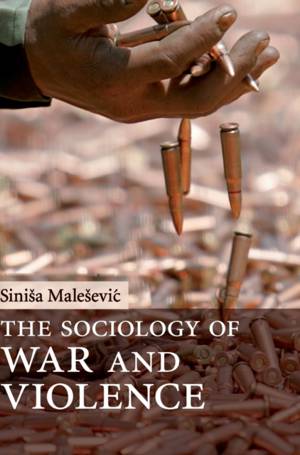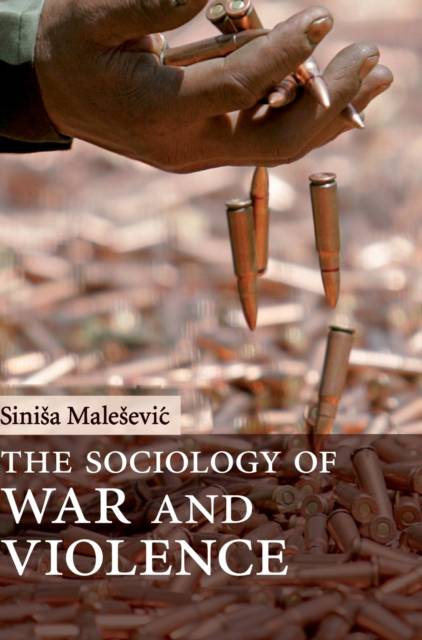
Je cadeautjes zeker op tijd in huis hebben voor de feestdagen? Kom langs in onze winkels en vind het perfecte geschenk!
- Afhalen na 1 uur in een winkel met voorraad
- Gratis thuislevering in België vanaf € 30
- Ruim aanbod met 7 miljoen producten
Je cadeautjes zeker op tijd in huis hebben voor de feestdagen? Kom langs in onze winkels en vind het perfecte geschenk!
- Afhalen na 1 uur in een winkel met voorraad
- Gratis thuislevering in België vanaf € 30
- Ruim aanbod met 7 miljoen producten
Zoeken
€ 215,95
+ 431 punten
Uitvoering
Omschrijving
War is a highly complex and dynamic form of social conflict. This new book demonstrates the importance of using sociological tools to understand the changing character of war and organised violence. The author offers an original analysis of the historical and contemporary impact that coercion and warfare have on the transformation of social life, and vice versa. Although war and violence were decisive components in the formation of modernity most analyses tend to shy away from the sociological study of the gory origins of contemporary social life. In contrast, this book brings the study of organised violence to the fore by providing a wide-ranging sociological analysis that links classical and contemporary theories with specific historical and geographical contexts. Topics covered include violence before modernity, warfare in the modern age, nationalism and war, war propaganda, battlefield solidarity, war and social stratification, gender and organised violence, and the new wars debate.
Specificaties
Betrokkenen
- Auteur(s):
- Uitgeverij:
Inhoud
- Aantal bladzijden:
- 376
- Taal:
- Engels
Eigenschappen
- Productcode (EAN):
- 9780521516518
- Verschijningsdatum:
- 10/06/2010
- Uitvoering:
- Hardcover
- Formaat:
- Genaaid
- Afmetingen:
- 178 mm x 249 mm
- Gewicht:
- 879 g

Alleen bij Standaard Boekhandel
+ 431 punten op je klantenkaart van Standaard Boekhandel
Beoordelingen
We publiceren alleen reviews die voldoen aan de voorwaarden voor reviews. Bekijk onze voorwaarden voor reviews.









